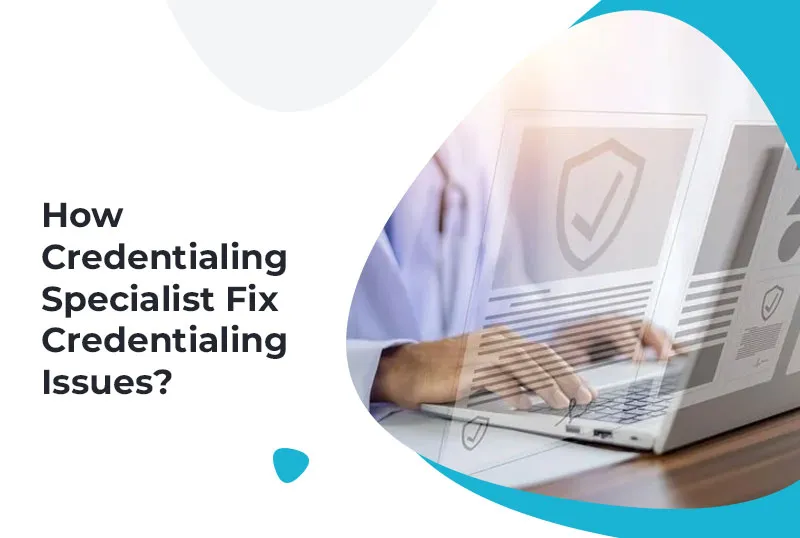Choosing the right credentialing specialist can be a complex and time-consuming process that sometimes take several to properly onboard a new provider in the healthcare organization. Several challenges can arise during this process which causes delay in onboarding as well as revenue losses to the medical practice.
Let’s discuss the potential challenges in implementing professional credentialing services and what strategies can prevent or make the process more effective.
Credentialing Issues in Healthcare
Improper credentialing can negatively affect your healthcare organization as well as providers. Let’s look at some of the potential challenges you can face in implementing healthcare credentialing:
1. Delays and Lost Revenue
Medical and insurance credentialing takes anywhere from 90 ton 120 days. Any delays in documentation submission and approvals causes losses to both the provider and the organization.
2. Data Integrity Problems
Errors in paperwork such as spelling or missing information and not validating information can cause rejection. If this occurs, then new paperwork is needed to be resubmitted and again goes through the approval process.
3. Non-Compliance
If any violation in federal or state regulations can lead to fines and credentialing delays. Furthermore, this can eventually lead to getting your application rejected by the credentialing board.
4. Unprotected Private Information
Any information breach or leaks of the provider’s private details can become concerning for the organization and the provider.
5. Inadequate Credentialing Knowledge
Unqualified staff or individuals can cause make the credentialing process slow and the losses in revenue that affects both the provider as well as the medical practice
Strategies to Prevent Healthcare Credentialing Challenges
Healthcare credentialing specialist can solve these issues with strategies that can prevent delays and losses, making the process more effective.
1. Partner with a Credentialing Service
Outsourcing credentialing to a trusted third-party service can help make the process more efficient with the right professional guidance. This saves time and money as well as effective completion of credentialing and enrolments.
2. Hire and Retain Qualified Staff
Hiring and retaining qualified is important for making the credentialing process easy and productive. With several months of training staff become more efficient in credentialing processes and being updated on new policies allows for more approvals.
3. Use Automated Services
Automating your credentialing can prevent data errors and optimizing processes. With verification of state and federal licenses and third-party services, CAQH credentialing, making the process more effective by sharing provider information with multiple insurance and health networks.
4. Collaborate with Leadership
Collaborating with organizational leadership and keeping them informed on updates can improved your onboarding as as well as any credential issue in medical billing coding. This allows for data-driven decisions for better approach.
5. Understand State and Federal Regulations
Understanding state and federal laws and regulations is important for reviewing licensing, insurance billing, and Centers for Medicare and Medicaid Services requirements. Better knowledge of these laws and regulations can increase approval rates.
6. Track and Record Progress
Using tools like checklists, logs and provider enrolment guides for tracking credentialing information and progress to prevent delays.
7. Start as Early as Possible
The credentialing process can be time-consuming, so start with a pre-application submission to know any errors that can causes delays and fill out any missing details with copies of documentation.
Overcome Credentialing Challenges with Precision Hub
While healthcare credentialing services can be a challenging process, it doesn’t have to cause problems for provider onboarding. Credentialing specialist makes the process easier by offering features such as complete provider profiles, automated license verification, and a reliable enrolment workflow.







